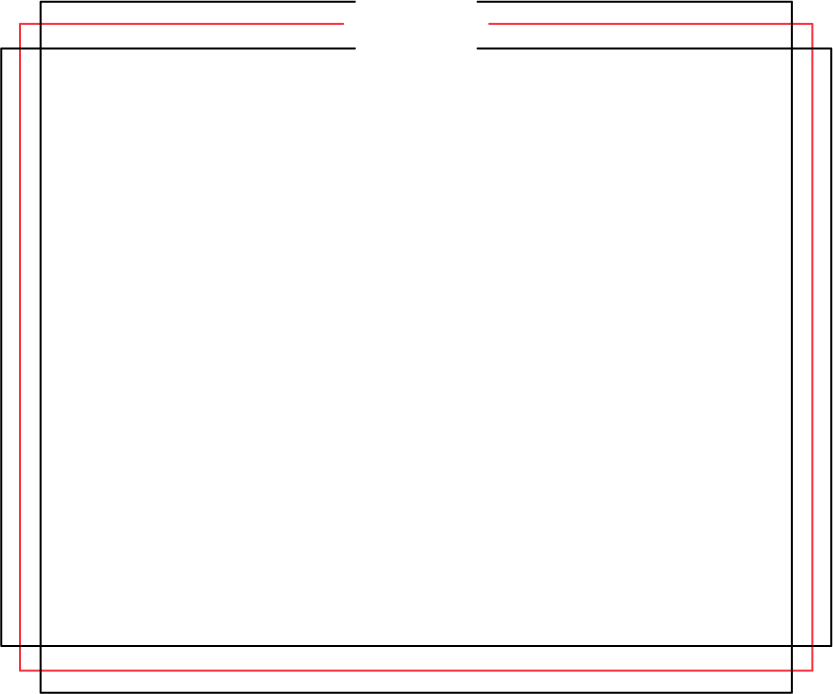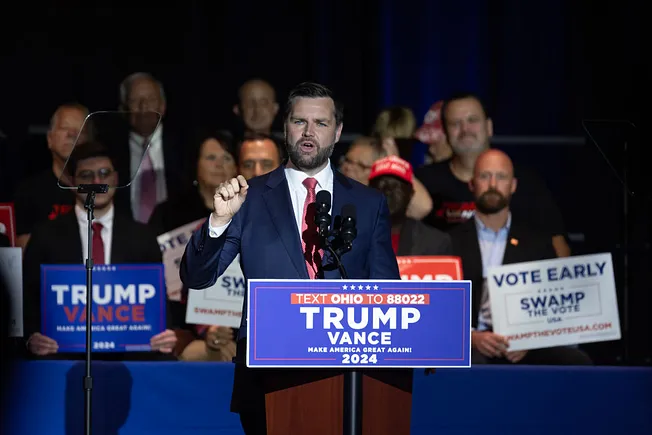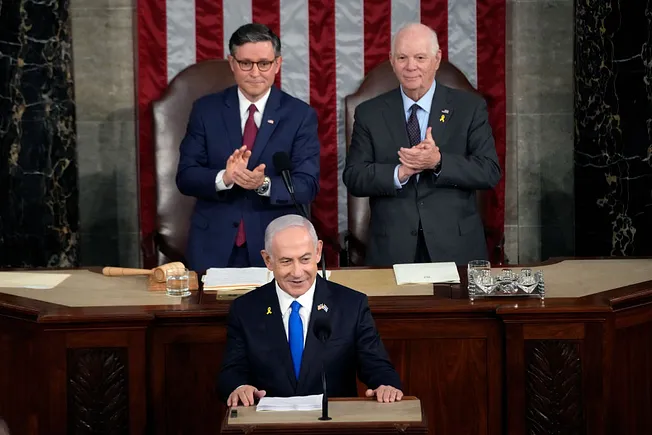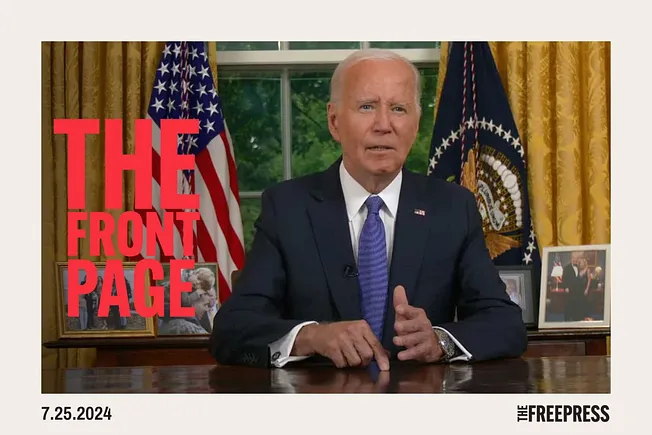Remember when we were told that China was a model for the world in controlling Covid? Sure, as a totalitarian state, it was able to weld people inside their homes and monitor its citizens via drone. But many in the West believed that such measures were necessary. They argued that the abandonment of personal liberty was an appropriate way to fight a respiratory virus.
Now Shanghai is the model for the terrifying dangers of giving dictatorial powers to public health officials. The harrowing situation unfolding there is a testament to the folly of a virus containment strategy that relies on lockdown. For two weeks, the Chinese government has locked nearly 25 million people in their homes, forcibly separated children from their parents, killed family pets, and limited access to food and life-saving medical care—all to no avail. Covid cases are still rising, yet the delusion of suppressing Covid persists.
In America, many of our officials still have not abandoned their delusions about Covid and the exercise of power this crisis has allowed. As the Shanghai debacle demonstrates, of all the many terrible consequences of our public health response to Covid, the stifling of dissenting scientific viewpoints by the state might be the most dangerous.
I would know: For the past two years I have been the target of a smear campaign aimed at demonizing those who dare to question official policy. Now, a proposed California law threatens to make such dissent career-ending by handing the state the power to strip medical licenses from doctors who disagree with government positions on Covid.
Before I get to this awful bill, let me explain what happened to me.
In October 2020, I, along with colleagues Sunetra Gupta of Oxford, and Martin Kulldorff, then of Harvard, issued an open letter called the Great Barrington Declaration. In it, we expressed deep concern about the damage caused by the international public health response to Covid through sweeping lockdowns, school shutdowns, business closures, and more.
We urged a nuanced approach that focused on protecting those most vulnerable to Covid—primarily the elderly and those with certain comorbidities—and returning to normal life those more harmed by lockdowns than by the disease.
Nearly a million people have signed our letter, including tens of thousands of doctors and scientists from over 40 countries. In other words, we were far from alone in our belief that this was the proper response to an unprecedented pandemic.
But the official response was swift and brutal.
Four days after we published the Great Barrington Declaration, Francis Collins, then director of the National Institutes of Health, wrote an email to Anthony Fauci calling the three of us “fringe epidemiologists.” He called for a press “takedown” of us when an open discussion of our ideas would have been more productive. Big tech outlets like Facebook and Google followed suit, suppressing our ideas, falsely deeming them “misinformation.” I started getting calls from reporters asking me why I wanted to “let the virus rip,” when I had proposed nothing of the sort. I was the target of racist attacks and death threats.
Despite the false, defamatory and sometimes frightening attacks, we stood firm. And today many of our positions have been amply vindicated. Yet the soul searching this episode should have caused among public health officials has largely failed to occur. Instead, the lesson seems to be: Dissent at your own risk.
I do not practice medicine—I am a professor specializing in epidemiology and health policy at Stanford Medical School. But many friends who do practice have told me how they have censored their thoughts about Covid lockdowns, vaccines, and recommended treatment to avoid the mob. Though Stanford is supposedly a bastion of academic freedom, one junior untenured professor recently wrote to me: “I have heard you several times on television regarding the Covid issue and find myself resonating with your views. I am inclined to express those very same opinions to my colleagues and administrative members at Stanford. I have been reluctant to date because quite honestly, I expect that my faculty appointment would not be renewed. I have the perception that free speech is just not there.”
This forced scientific groupthink—and the fear and self-censorship they produce—are bad enough. So far, though, the risk has been social and reputational. Now it could become literally career-ending.
According to California Assembly Bill 2098, physicians who deviate from an authorized set of beliefs would do so at risk to their medical license. The bill, written by Assemblyman Evan Low, a Democrat in Silicon Valley, and currently making its way through the California Legislature, is motivated by the idea that practicing doctors are spreading “misinformation” about the risks of Covid, its treatment, and the Covid vaccine. It declares that physicians and surgeons who “disseminate or promote misinformation or disinformation related to COVID-19, including false or misleading information regarding the nature and risks of the virus, its prevention and treatment; and the development, safety, and effectiveness of COVID-19 vaccines” shall be subject to “disciplinary action,” which could result in the loss of the doctor’s medical license.
The language of the bill itself is intentionally vague about what constitutes “misinformation,” which makes it even more damaging. Doctors, fearing loss of their livelihoods, will need to hew closely to the government line on Covid science and policy, even if that line does not track the scientific evidence. After all, until recently, top government science bureaucrats like Dr. Fauci claimed that the idea that Covid came from a Wuhan laboratory was a conspiracy theory, rather than a valid hypothesis that should be open to discussion. The government’s track record on discerning Covid truths is poor.
The bill claims that the spread of misinformation by physicians about the Covid vaccines “has weakened public confidence and placed lives at serious risk.” But how significant is this problem in reality? Over 83% of Californians over the age of 50 are fully vaccinated (including the booster).
Because the Covid vaccines protect against severe disease and because older people face a thousand-fold higher risk of death from Covid infection, it is most important that older people be vaccinated. But there is simply no evidence that more older people would have been vaccinated had this bill been in place over the past two years.
What is abundantly clear is that this bill represents a chilling interference with the practice of medicine. The bill itself is full of misinformation and a demonstration of what a disaster it would be to have the legislature dictate the practice of medicine.
For starters, it fails to note that people who have contracted Covid—by now a considerable number of Californians—already have substantial protection against severe disease if they get Covid again. High quality studies have shown that this “natural immunity” provides equivalent or even greater protection than immunity generated by Pfizer and Moderna’s mRNA vaccines. If this bill passes, would a California physician be in trouble for taking into account a patient’s Covid history when making vaccination recommendations?
Another statement in the bill’s preamble asserts that the “safety and efficacy of Covid vaccines have been confirmed through evaluation by the federal Food and Drug Administration (FDA).” But vaccine safety also depends on any given patient’s clinical circumstances. For example, there is an elevated risk of myocarditis in young men taking the vaccine, especially with the booster.
The bill directs the California state licensing board to impose disciplinary penalties, which could result in the loss of a medical license, on physicians who disseminate “misinformation.” A loss of a license would be career-ending for doctors who spend their lives caring for patients. But since the examples cited in the bill are themselves misleading, even physicians who practice medicine responsibly or give public presentations grounded in solid scientific research on the evolving Covid science may face unjust license suspensions.
The ultimate effect of the bill will be to chill public criticism by California doctors of mistaken government public health diktats since few will want to put their licenses in the hands of the very public health officials with whom they disagree over the interpretation of science. Even legitimate dissent from public health orthodoxy by licensed doctors may be excised from the public square as a consequence. Worse, the widespread distrust Americans now have in public health institutions will only deteriorate further.
And that’s to say nothing of the impact this bill would have on the practice of medicine. Doctors have an obligation to treat each patient as an individual. Yet the California Assembly bill turns doctors into agents of state public health rather than advocates for their patients.
History provides abundant examples of what happens when the state regulates science. In the former Soviet Union, Stalin’s favorite geneticist, Trofim Lysenko, dominated biology and the agricultural sciences. Lysenko rejected Mendelian genetics in favor of his own theory that plants could inherit acquired characteristics. Stalin empowered him to destroy the careers and lives of geneticists who opposed him, causing many to suffer secret arrests and even death. When his theories failed, the consequence was mass starvation in Russia. The Chinese Communists also adopted his beliefs—at the cost of the starvation of 30 million.
We are not the Soviet Union, of course, nor are we ruled by Chinese Communists. California lawmakers thankfully do not have the power currently being exercised in Shanghai. But this bill follows the same dangerous principle that government-authorized science should permit no opposition from people with the credentials and knowledge to oppose it. The false medical consensus enforced by AB 2098 will lead doctors to censor themselves to avoid government sanction. And it will be their patients, above all, who will be harmed by their silence.










our Comments
Use common sense here: disagree, debate, but don't be a .